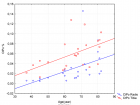Abstract
Review Article
Determinants of Rural Women's Participation in Agricultural Cooperatives in Burundi: The Case of the TWITEZIMBERE and REKATUJANE Rice Cooperatives in the GIHANGA Commune
Ntakirutimana Leonard, Professor, Faculty of Agronomy and Bio-Engineering & Higher Institute of Commerce, University of Burundi, France and Email: [email protected]; [email protected]
Published: 13 February, 2024 | Volume 8 - Issue 1 | Pages: 001-011
This article shows the driving factors of rural women's participation in the TWITEZIMBERE and REKATUJANE rice cooperatives in the GIHANGA commune. These factors are related to the preservation of traditional culture in Burundi in general and in rural areas in particular, where women are in the majority. To achieve this, the research methodology used is both qualitative (individual interviews and documentary research) and quantitative (questionnaire administered to respondents). The results of this research show that traditional culture has forced rural women to stay at home to care for children and perform various household chores. This situation of isolation leads to a lack of information about the benefits of rice-growing cooperatives and the value they can bring to their members. It is also observed that rural women lack the will to adopt the new rice farming practices in Cooperatives. This situation of lack of will to adopt new behavior has hindered the massive participation of rural women in rice cooperatives. Finally, the article emphasizes that the illiteracy of these rural women and the lack of external technical and financial support are considered other important factors that constituted the barriers to their massive participation in rice cooperatives. To deal with this series of problems, the researcher has discovered strategies that can encourage rural women to participate massively in rice cooperatives, in particular, to become members of rice cooperatives that help their members to make them known and receive external technical and financial support, for example, incentives from the government. For this, the Government must therefore help them by providing multifaceted support including local and foreign technical and financial partners. Similarly, cooperative leaders might seek out various donors for their agricultural cooperative associations.
Read Full Article HTML DOI: 10.29328/journal.afns.1001055 Cite this Article Read Full Article PDF
Keywords:
Participation; Driver factors; Rural women; Agricultural cooperative and associations
References
- Sindjoun L. The Social Biography of Sex. Karthala and Codesria Editions. 2000.
- Agricultural cooperatives and gender equality, international year of cooperatives issue brief series. 2012.
- Milad S, Mahin K, Adel S, Mirzaei R. The role of rural women in rural development and the impact of family economy. The 3rd Annual Conference on Iran Agricultural Researches. Iran. 2017.
- Raphaël C. Participation of women in rural development in Guinea Maritime Mixed Research Unit Regards. 1995.
- Luo L, Qiao D, Tang J, Wan A, Qiu L, Liu X, Liu Y, Fu X. Training of Farmers’ Cooperatives, Value Perception and Members’ Willingness of Green Production. Agriculture. 2022A; 12:1145. https:// doi.org/10.3390/agriculture12081145
- Luo L, Qiao D, Zhang R, Luo C, Fu X, Liu Y. Research on the Influence of Education of Farmers' Cooperatives on the Adoption of Green Prevention and Control Technologies by Members: Evidence from Rural China. Int J Environ Res Public Health. 2022 May 20;19(10):6255. doi: 10.3390/ijerph19106255. PMID: 35627792; PMCID: PMC9140511.
- Leonard N, Li F, Huang X, Wang S, YinC. Green Manure Planting Incentive Measures of Local Authorities and Farmers’ Perceptions of the Utilization of Rotation Fallow for Sustainable Agriculture in Guangxi, China. 2019; 11:10; 2723. https://doi.org/10.3390/su11102723
- Empowering rural women-end poverty and hanger-: the potential of Africa cooperatives. 2009. www.ilo.org/coopafrica
- Oumar BA. The participation of populations in local development in Guinea: Case of the CRD of SAREKELY in the prefecture of TELIMELE. 2001.
- Isabelle D. Femmes et développement Rural, Editions Karthala 22-24, boulevard Argo 75013 Paris. 1995.
- Jeanne B. women's participation in mixed cooperatives: time and ideology; Revue Tiers-Monde No. 102. April – June. 1985.
- Law No. 1/12. governing Cooperative Societies in Burundi. 2017.
- United Nations. The role of cooperatives in social development, General Assembly, 64th session, report of the Secretary-General. 2009; 4.
- Jeanne B. women's participation in mixed cooperatives: time and ideology; Revue Tiers-Monde No. 102. April – June. 1985.
- Benoît G. Social Research on Problematics Press Edition of the University of Quebec. 1990.
- Latitia B. Analysis of the situation of women in West and Central Africa CEPRASS Abidjan September. 2000.
- Technical coffee innovations and rural development: Case study of the Burundian experience through the example of the Bonakure federation of the Kayanza province in northern Burundi. Single doctoral thesis in sociology, option, Rural sociology. Félix Houphouët Boigny University of Abidjan/Cocody. Abidjan. 2014; 278.
- Séguin MT, Robinson G. Gender ethics and cooperative democracy, in Guy Robinson, Marie-Thérèse Séguin and Roland Thériault, Ethics and cooperatives: bibliography document and methodological tools, IRECUS (University of Sherbrooke). 2006.
- The participation and the role of rural women in agricultural cooperative, the case of coffee farmers ‘cooperatives, Jimma Zone. Ethiopia. 2003.
- Constitution of Burundi promulgated on June 7, 2018
- Isabelle J. Male/Female Development Editions le Harmattan. 1995.
- Louis F, Hurtubise Y. The contribution of community organization and agricultural cooperatives, Quebec, Presses de l’Université du Québec. 1993.
- Mathieu Nicole-Claude. Notes for a sociological definition of sex categories, in political anatomy, Paris, Coté-FEMMES. 1991.
Figures:
Similar Articles
-
Mapping of Local Therapeutic Foods (LTF) and Micronutrients (MN); their logistics in community-based management of Severe Malnutrition (SAM, SUW) as a benchmark in tribal Melghat, MaharashtraAshish Satav*,Vibhawari Dani,Jayashri Pendharkar,Dipty Jain,Kavita Satav. Mapping of Local Therapeutic Foods (LTF) and Micronutrients (MN); their logistics in community-based management of Severe Malnutrition (SAM, SUW) as a benchmark in tribal Melghat, Maharashtra. . 2022 doi: 10.29328/journal.afns.1001034; 6: 026-034
-
Determinants of Rural Women's Participation in Agricultural Cooperatives in Burundi: The Case of the TWITEZIMBERE and REKATUJANE Rice Cooperatives in the GIHANGA CommuneNtakirutimana Leonard, Professor, Faculty of Agronomy and Bio-Engineering & Higher Institute of Commerce, University of Burundi, France, Email: [email protected]; [email protected]. Determinants of Rural Women's Participation in Agricultural Cooperatives in Burundi: The Case of the TWITEZIMBERE and REKATUJANE Rice Cooperatives in the GIHANGA Commune. . 2024 doi: 10.29328/journal.afns.1001055; 8: 001-011
Recently Viewed
-
A Comparative Study of Metoprolol and Amlodipine on Mortality, Disability and Complication in Acute StrokeJayantee Kalita*,Dhiraj Kumar,Nagendra B Gutti,Sandeep K Gupta,Anadi Mishra,Vivek Singh. A Comparative Study of Metoprolol and Amlodipine on Mortality, Disability and Complication in Acute Stroke. J Neurosci Neurol Disord. 2025: doi: 10.29328/journal.jnnd.1001108; 9: 039-045
-
Development of qualitative GC MS method for simultaneous identification of PM-CCM a modified illicit drugs preparation and its modern-day application in drug-facilitated crimesBhagat Singh*,Satish R Nailkar,Chetansen A Bhadkambekar,Suneel Prajapati,Sukhminder Kaur. Development of qualitative GC MS method for simultaneous identification of PM-CCM a modified illicit drugs preparation and its modern-day application in drug-facilitated crimes. J Forensic Sci Res. 2023: doi: 10.29328/journal.jfsr.1001043; 7: 004-010
-
A Gateway to Metal Resistance: Bacterial Response to Heavy Metal Toxicity in the Biological EnvironmentLoai Aljerf*,Nuha AlMasri. A Gateway to Metal Resistance: Bacterial Response to Heavy Metal Toxicity in the Biological Environment. Ann Adv Chem. 2018: doi: 10.29328/journal.aac.1001012; 2: 032-044
-
Obesity in Patients with Chronic Obstructive Pulmonary Disease as a Separate Clinical PhenotypeDaria A Prokonich*, Tatiana V Saprina, Ekaterina B Bukreeva. Obesity in Patients with Chronic Obstructive Pulmonary Disease as a Separate Clinical Phenotype. J Pulmonol Respir Res. 2024: doi: 10.29328/journal.jprr.1001060; 8: 053-055
-
Current Practices for Severe Alpha-1 Antitrypsin Deficiency Associated COPD and EmphysemaMJ Nicholson*, M Seigo. Current Practices for Severe Alpha-1 Antitrypsin Deficiency Associated COPD and Emphysema. J Pulmonol Respir Res. 2024: doi: 10.29328/journal.jprr.1001058; 8: 044-047
Most Viewed
-
Evaluation of Biostimulants Based on Recovered Protein Hydrolysates from Animal By-products as Plant Growth EnhancersH Pérez-Aguilar*, M Lacruz-Asaro, F Arán-Ais. Evaluation of Biostimulants Based on Recovered Protein Hydrolysates from Animal By-products as Plant Growth Enhancers. J Plant Sci Phytopathol. 2023 doi: 10.29328/journal.jpsp.1001104; 7: 042-047
-
Sinonasal Myxoma Extending into the Orbit in a 4-Year Old: A Case PresentationJulian A Purrinos*, Ramzi Younis. Sinonasal Myxoma Extending into the Orbit in a 4-Year Old: A Case Presentation. Arch Case Rep. 2024 doi: 10.29328/journal.acr.1001099; 8: 075-077
-
Feasibility study of magnetic sensing for detecting single-neuron action potentialsDenis Tonini,Kai Wu,Renata Saha,Jian-Ping Wang*. Feasibility study of magnetic sensing for detecting single-neuron action potentials. Ann Biomed Sci Eng. 2022 doi: 10.29328/journal.abse.1001018; 6: 019-029
-
Pediatric Dysgerminoma: Unveiling a Rare Ovarian TumorFaten Limaiem*, Khalil Saffar, Ahmed Halouani. Pediatric Dysgerminoma: Unveiling a Rare Ovarian Tumor. Arch Case Rep. 2024 doi: 10.29328/journal.acr.1001087; 8: 010-013
-
Physical activity can change the physiological and psychological circumstances during COVID-19 pandemic: A narrative reviewKhashayar Maroufi*. Physical activity can change the physiological and psychological circumstances during COVID-19 pandemic: A narrative review. J Sports Med Ther. 2021 doi: 10.29328/journal.jsmt.1001051; 6: 001-007

HSPI: We're glad you're here. Please click "create a new Query" if you are a new visitor to our website and need further information from us.
If you are already a member of our network and need to keep track of any developments regarding a question you have already submitted, click "take me to my Query."


















































































































































